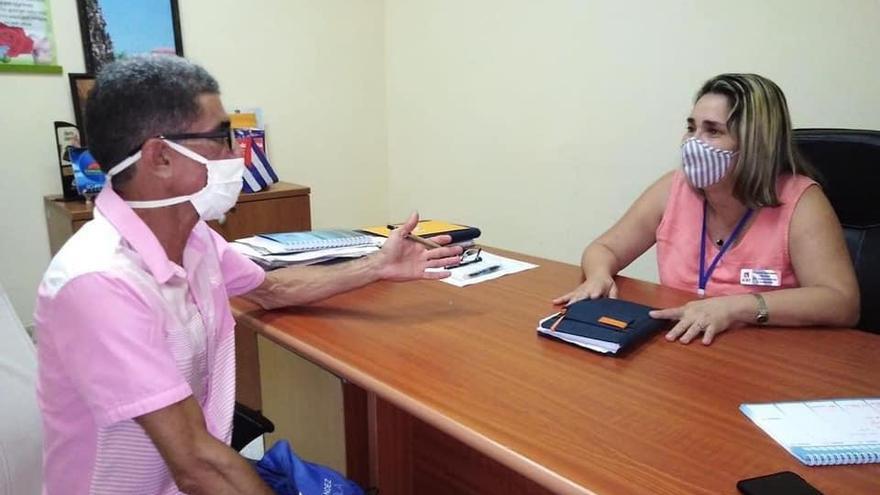
14ymedio, Havana, July 17, 2020 – “We have to be careful about the voices that transmit our political propaganda.” Thus, Yusimi González Herrera, a representative of the Cuban Institute of Radio and Television (ICRT), tries to explain what she said. Her controversial statements about the abundance of “high-pitched” voices on the Cuban airwaves became news this week.
In a new audio shared this Thursday on social networks, González, in conversation with Alfredo Zamora Mustelier, director of programs and the head of ICRT’s propaganda, spoke about the importance of the “architecture” and “design” of voices used to transmit political propaganda. “Can you imagine how people called to a march feel when they hear a high-pitched voice?” asked Zamora, provoking laughs among those present.
“More than that, Zamora,” interrupts González. “We have to be careful about the voices of those who transmit our political propaganda,” she explained, alleging that “they contain our identity, the defense of the Cuban nation, the country”.
After the stir caused by her statements, González excused herself in an interview with the journalist Francisco Rodríguez Cruz, whose full text was disseminated Thursday in his blog, where he said that the audio, the first of those played, corresponds to “a work meeting that lasted several hours”.
“It’s my voice and it comes from a meeting I had in 2016 about techniques of locution and other questions. It was a work agenda, and this was among the themes we discussed,” González said.
“What were we defending at that time and still defend today? That our channels and emissions all have a profile, a profile that defends and defines us, from rhythms, a profile across editorial lines, of sounds, timbres, tones. (…) That’s what we were talking about. (…) I believe the fragment that was selected comes from here, when we referred to high-pitched voices. There are high-pitched voices that work for one type of program, but not for another,” she added.
González said that the audio was “edited” to “convey the idea of the person who edited it” and “to imply that the station was evaluating high-pitched voices and whether people with this type of voice could work in the communication media, when it’s not true”.
“It’s never been the position of radio or television to limit anyone by sexual orientation, disability or skin color. This isn’t the case.”
In addition, she recognized that it’s possible that “at some moment” the Institute of Radio and Television could have been wrong “because humans can always improve themselves”, but she noted that they “knew enough to offer apologies”.
Asked if a specific apology for her words in that meeting would be fitting, she said that anyone who knows her “knows that this audio isn’t how I think”. However, she said she was sorry that some people “felt hurt” because “no one has the right to hurt anyone”.
Upon ending the interview, González denied having been aggressive, “as a professional, mother, daughter”, or that she also hurt her family and friends. “A speech has been manipulated, a contribution or a construction of my thinking at that moment. It has been used to injure other people, to try to create divisions, to mistreat people. And that’s not fair, it’s not something good people do, it’s not real”, she concluded.
Translated by Regina Anavy
____________
COLLABORATE WITH OUR WORK: The 14ymedio team is committed to practicing serious journalism that reflects Cuba’s reality in all its depth. Thank you for joining us on this long journey. We invite you to continue supporting us by becoming a member of 14ymedio now. Together we can continue transforming journalism in Cuba.
